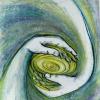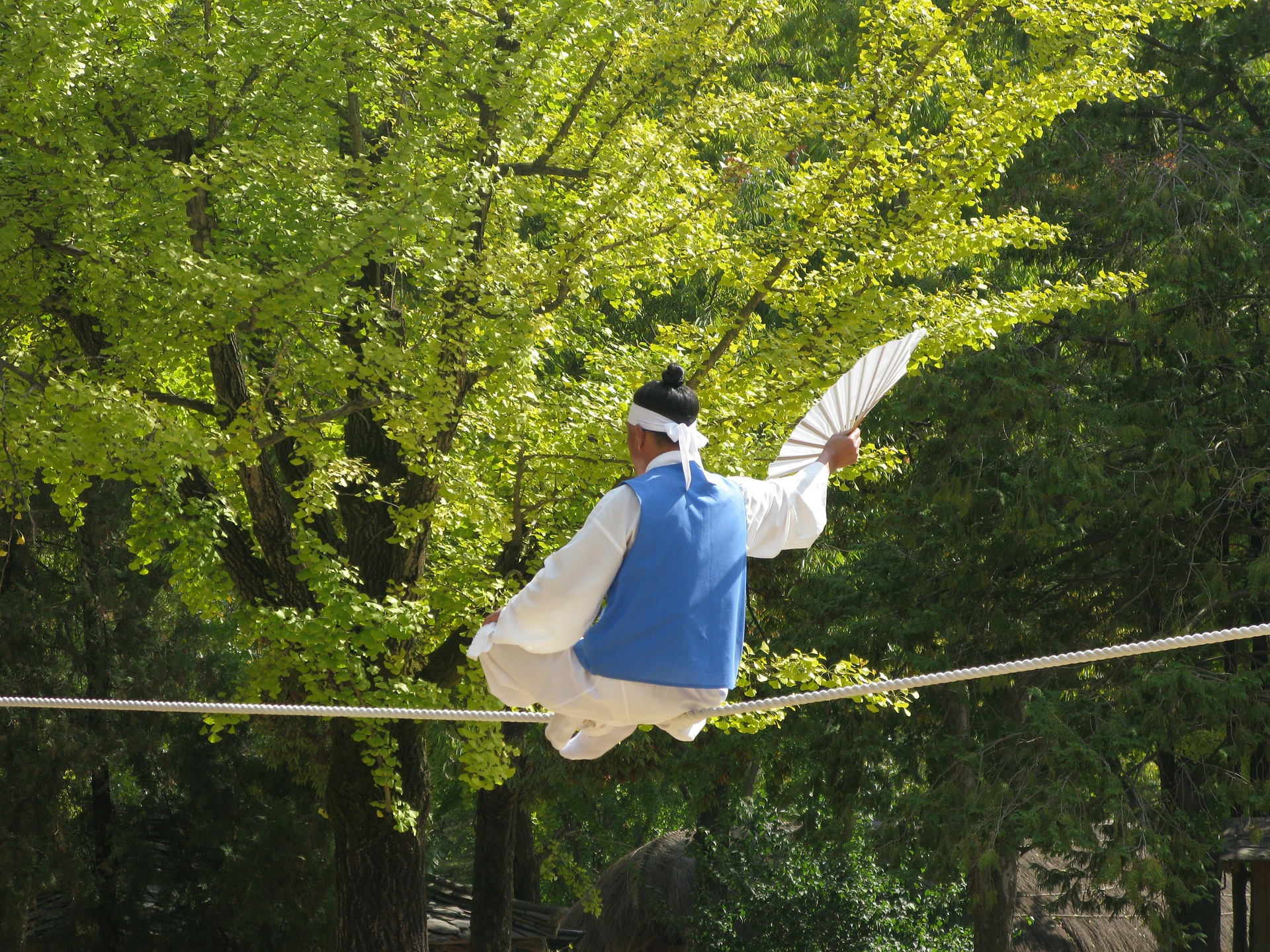 Submitted by Rev. Micah Allard on
Submitted by Rev. Micah Allard on

Let me step outside the usual Primal fare today and play with an idea we’re all familiar with on some level. Balance: it’s perhaps the most ubiquitous self-help buzz word, and it seems like the perfect, compliant prescription for a manic paced world. I mean, who can argue with finding more balance in life?
The way it’s usually presented focuses us on organizing, strategizing, and maximizing. These all seem like worthwhile endeavors (and sure, there’s often a lot to be gained from them), but could “balance” as it’s interpreted this way limit our scope of personal vision and possible change? It doesn’t challenge us to ask the kind of weighty questions that shift our lives fundamentally. Think of it this way. We likely don’t resolve on New Year’s Eve to “achieve” more balance in the coming year and then find ourselves weighing a hundred pounds lighter, starting a new career, or taking on a new phase in our lives. If we do, it’s likely because we chucked the resolution for something much more ambitious.
It also doesn’t demand that we ask whether we’ve taken on too much in the first place. Add another responsibility to your already busy schedule, shift some resources here, make a few adjustments there, and voilà, balance! Or do all of your responsibilities (and thus, your entire life) suffer as a result?
My sense is that at its best, “balance” in the conventional sense can give us a short term strategy for managing our lives as they are. At its worst, it can lull us into fully accepting a precipitous cycle of frenetic living – and can keep us from truly thriving. But let’s take a closer look and see what we can uncover.
First, what is usually meant by balance, anyway? Then, should we really be striving for it after all?
When I see the word balance on a yoga/health/fitness/natural-living magazine cover, I always imagine one of those plate spinners – the performers who enthrall crowds by tending to any number of plates they spin on long sticks. The idea of course is to spend just enough time and attention on each plate to keep it moving but not so much to lose track of another and see it shatter on the floor. Meanwhile, the person at the center of this game is darting back and forth with keen, jittery attention. It’s always struck me as a manic and exhausting exercise. While it may be entertaining to watch, is it any way to live?
It seems like many people approach balance this way – as an act, a feat, a trick they cultivate. We’re supposed to take pride in how rapidly and deftly we attend to the given game in front of us – no matter how many plates there are; work, parenting, fitness, marriage, volunteer work, school, hobbies – the list goes on and on. If we just spin them fast enough, we should be able to keep any number of them going.
Balance in this way is about controlling, rationing, and conserving one’s time and attention. As rational as it seems, it also feels a little exacting. The concept – and the plate game – would’ve entirely eluded Grok. I think there’s a fine line between monitoring the relative parity of one’s life and parsing it out. We can miss much of the big picture – and miss or reject real opportunities for healthy change – when we’re frantically moving from one plate to next. Call it balance if you will. I’ll call it a game that can’t reasonably go on forever. The plates, eventually, always come crashing down if you add one plate too many.
Maybe there’s a different take to be found here. Let me modestly suggest this: the equilibrium shouldn’t be in the plates. Forget the plates, in fact. Forget the spinning. Let go of the perpetual vigilance. Loosen your emotional grip. Just observe the whole metaphor – and mindset – shatter on the floor. (Truth be told, there’s something therapeutic about it.) Maybe the crux of genuine equanimity isn’t to be found in maneuvering. Rather, perhaps we should let the parts go and home in on the real center.
First, a caveat… Sure, there are times in life that call for juggling. You have a particularly busy month at work. You’re working around a family member’s illness or absence. You have a baby. I remember life when the kids were both little. Especially right after we had our second and were learning to function with two, we had what we called the “ten minute plan,” in which we set the agenda for what had to be done in the next ten minutes. After that we had absolutely no idea. It was too much to consider. Life was lived according to a succession of ten minute plans. As we got a better handle on things, we didn’t add time to the “plan.” We gradually let go of it. We rescinded enough control that things began happening organically again. Sure, there were times when we had to resurrect the ten-minute model, and we were glad we were schooled in it. It made life easier to be able to efficiently slip into that mode as necessary, but we always looked forward to slipping out of it as soon as possible. In other words, it was a strategy to use but not a way to live.
On the flip side of the coin, if you find yourself continually gravitating toward – longing for a sense of balance, I’d suggest stepping outside of the concept for a while. Put away the calendar. Drop the magazine questionnaires. Go for a long walk. What would it take for *you* to feel balanced? Forget how the responsibilities line up. Just suspend them for a while. (Trust me, they won’t go away.) Imagine feeling a genuine sense of equilibrium in your life. Maybe you’ve found it – made it happen. Maybe you feel it sometimes. Maybe you used to feel it. Maybe it’s never felt in your grasp. Can you put yourself in that place? How has the scenery changed?
For all the choice we have in the modern age, we deal with some pretty hefty challenges. We navigate circumstances and weigh options that never figured in during our ancestors’ day. We wrestle with the co-existing freedom and responsibility of forging our own paths toward how we envision thriving. The answers might not always be clear. What do we want out of life? Can we find these by adding plates and “balancing” our daily agendas? Or, alternatively, do we need to shift the center altogether?
Thanks for reading my musings on this much bandied about word and concept, everybody. You tell me: What does balance mean for you in your wellness endeavors? Have you been able to achieve your goals by balancing your life, or have you felt called to make more seismic shifts?
MARK SISSON http://www.marksdailyapple.com/what-does-it-mean-to-have-balance-in-your-life/#axzz4IkPpfvbf
- 781 reads